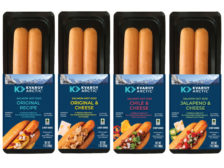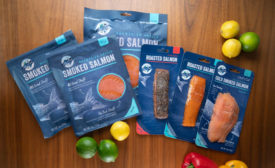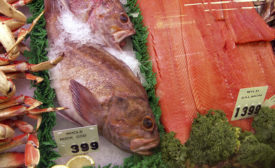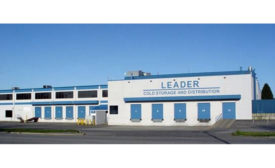Home » Keywords: » seafood traceability
Items Tagged with 'seafood traceability'
ARTICLES
Raw Seafoods, IBM use blockchain to help improve seafood traceability, sustainability
The technology will address a number of problems, including widespread seafood fraud and mislabeling.
October 24, 2019
New industry-led alliance to clean up tuna supply chains
All companies in the Global Tuna Alliance are expected to source tuna from fisheries certified by the Global Seafood Sustainability Initiative’s recognized sustainability standards.
October 11, 2019
Makushin Bay Resources acquires NSF International’s Dutch Harbor lab
Makushin Bay Resources will continue to perform analytical services, including customized evaluations to specifications and methodologies and chemical and microbiological testing.
July 8, 2019
Ready Seafood, Santa Monica Seafood help fund UMaine lobster research
Data collected during the 2019 expeditions will provide lobster fishery managers and coastal communities the information needed to respond to the changing environment and forecast future trends.
June 5, 2019
University of Louisiana at Lafayette secures grant to expand sustainable seafood study
The money will enable university researchers to examine the seafood supply chain in seven coastal parishes.
April 29, 2019
Study reveals problems with fish mislabeling in Canada
The findings reveal that mislabeling happens before fish are imported into Canada, as well as throughout the supply chain.
February 11, 2019
InnovaSea to acquire Nortek Akvakultur
Nortek Akvakultur provides high-quality environmental data to the Norwegian aquaculture industry.
January 4, 2019
Leader Cold Storage upgrades WMS vs replacing with new to better manage inventory
These modules are expected to give customers accurate inventory counts and the independence to modify shipping scheduling and delivery.
March 29, 2018
Elevate your expertise in refrigerated and frozen foods with unparalleled insights and connections.
Get the latest industry updates tailored your way.
JOIN TODAY!Copyright ©2024. All Rights Reserved BNP Media.
Design, CMS, Hosting & Web Development :: ePublishing



